Search Results
Showing results 1 to 20 of 77
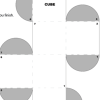
Fold a Crystal
Source Institutions
Rocks are made of minerals, and minerals often have crystal shapes. In this fun activity about geometry in nature, learners create their own crystal shapes out of paper.
Stories in the Sky
Source Institutions
In this activity, learners create their own constellations and star patterns and write a short, descriptive story explaining the significance of their star pattern/constellation.

A Flag for Your Planet
Source Institutions
In this activity, learners design a flag for a chosen or assigned planet. The instructions include information about flags on Earth, and a list of flag references.
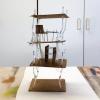
Engineering For Earthquakes
Source Institutions
In this design challenge, learners will engineer a structure and see if it can survive an earthquake they create.
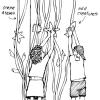
Kelp Critters
Source Institutions
This marine biology activity (on pages 11-17) introduces learners to kelp (seaweed) forests that grow in the ocean and are home to many species of sea animals.

Space Stations: Sponge Spool Spine
Source Institutions
In this activity, learners simulate what happens to a human spine in space by making Sponge Spool Spines (alternating sponge pieces and spools threaded on a pipe cleaner).
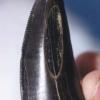
Fossils: Observing, Making and Learning
Source Institutions
In this activity, learners explore how casts of fossilized bones are created and used to learn about dinosaurs. Learners make observations, draw diagrams and share their findings.
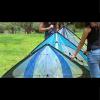
Kites
Source Institutions
This activity (on page 2 of the PDF under SciGirls Activity: Kites) is a full inquiry investigation into how a kite’s shape affects its performance.
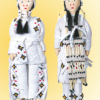
Plenty on the Plains
Source Institutions
In this activity, learners compare the ways of life of Plains Native Americans who hunted and moved frequently to follow the buffalo herds, and Native Americans who farmed and lived in more permanent
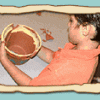
Piecing It All Together
Source Institutions
Learners create their own piece of history by decorating, shattering, and piecing together a flowerpot "artifact".
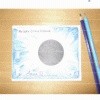
Eclipse Flipbook
Source Institutions
In this activity, learners make flipbooks of drawings showing the progression of a Total Solar Eclipse.
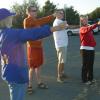
Does the Moon Rotate?
Source Institutions
This fun and simple hands-on astronomy activity lets learners make 3-dimensional models of the Earth and Moon.
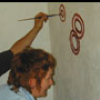
Big Banner Mural
Source Institutions
This activity is about the mural making process done about 9,000 years ago in Catalhoyuk, Turkey.

Building a 3-D Space Maze: Escher Staircase
Source Institutions
In this activity (page 95 of the PDF), learners create Escher Staircase models similar to those that were used by Neurolab's Spatial Orientation Team to investigate the processing of information about
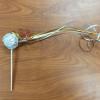
Make a Comet on a Stick
Source Institutions
In this activity, learners craft their own model of a comet on a stick to make it fly around the room.
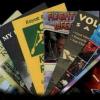
Destination Tidepool
Source Institutions
In this activity (page 7 of pdf), learners research tide pool ecosystems, and then create brochures that "advertise" these environments.

Model the Sun and Earth
Source Institutions
In this activity, learners make scale models of the Sun and Earth out of paper mache.
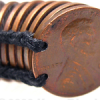
Penny Rubbing
Source Institutions
In this art-related activity, learners make a coin rubbing—a process similar to what archeologists may do with ancient artifacts. This activity can be used in connection with a history or art lesson.
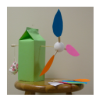
Wind Works!
Source Institutions
Learners will build and experiment with their own windmills made from simple household materials.
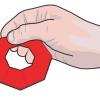
Origami Flying Disk
Source Institutions
In this three-part activity, learners use paper to explore Bernoulli's Principle — fast-moving air has lower pressure than non-moving air.
